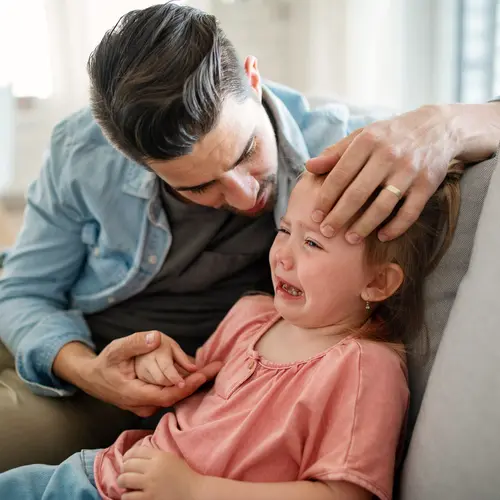Raising children to respect and value everyone in your community is an important task for any parent. It's natural to tell children to be kind to everyone and treat everyone the same way. But, many parents also want to find positive ways to address differences in race and ethnicity.
The anti-racism movement recognizes that a critical step in dismantling racism is understanding how race affects people. Learning to embrace racial and cultural differences gives kids an open attitude towards people. In addition, understanding the negative effects of racism helps kids and teens find ways to be allies in the effort to eradicate racism.
Here are five ways you can teach your kids to be anti-racist.
Start with yourself
Before you can think about what you are teaching your kids about race, you should think about what you know about race. You may be holding on to outdated ideas or incorrect information without realizing it. Spend some time learning about the history of marginalized groups and current racial justice issues.
You can do this by reading in-depth news sources and books that deal with history and current events. You can also learn about people by enjoying the art and culture they produce and share. Try enjoying books, films, music, comedy, and art by diverse artists and scholars. This can help you gain a deeper understanding of communities that might not be familiar to you.
It might be tempting to ask friends who are people of color to explain issues to you, but think carefully before you do that. They may not be comfortable acting as your teacher on issues of race. Look for books, videos, or classes by professional educators and activists, such as this list provided by UNC Chapel Hill. Those resources will cover the information you want to learn.
Don't try to be colorblind
The idea of figuratively not seeing race is a common idea. It's appealing to think that if everyone treated all people the same, without regard to race, there would be no more racism. Experts on race say that this ideal is almost impossible to attain. Race matters, and it's important to talk honestly to kids about why it matters.
People visually recognize racial differences from early in life. Studies show that babies as young as six months can recognize when people share their racial characteristics. If adults don't explain race and racial differences to children, they tend to draw their own conclusions, which might not be factual.
Instead of trying to gloss over race with kids, it's important to discuss it with them. Acknowledging race and racial justice gives your kids solid information about race and racism. By having frank discussions on the subject, you can help them understand things they might observe about race. You can also answer their questions about race and racial justice in ways that are consistent with anti-racist values.
Diversify your library
Not all discussions of race need to be serious or difficult. You can talk about books, movies, and music that touch on race. Movies, shows, and books with positive portrayals of diverse characters help build familiarity with all kinds of people.
As children get older, you can introduce books and movies that deal with issues of racial injustice. These stories are often good tools for starting discussions about complex topics. You and your children can watch a movie or read a book together then talk about what you learned.
Model allyship
Being anti-racist means actively working to dismantle racism. This is a complicated concept for many adults, so kids may have an even harder time understanding what that means. This is an area where parents and kids can learn together and talk about making their communities more racially just.
As you make choices about how to confront racism in your community, you should share your thoughts and actions with your kids. For example, you can let them know if you sign a petition about an important issue. Tell your children what you're doing and why if you go to a protest. If you see incidents where people are acting racist, tell your kids what you saw and discuss what you and they could do differently in a similar situation.
Celebrate diversity
Taking your kids to participate in cultural events in your community is a great way to learn about people and their backgrounds. It also teaches your children to value the different traditions that people around you have. Taking the time to join with others in your community is an act of respect for them.
Show your kids that you have an open mind and a positive attitude about diverse cultural experiences. You may have to check how you talk about unfamiliar foods, clothes, or traditions. Don't respond with skepticism or criticism. Show interest and ask respectful questions to teach your kids how to be curious and accepting of different cultures.


